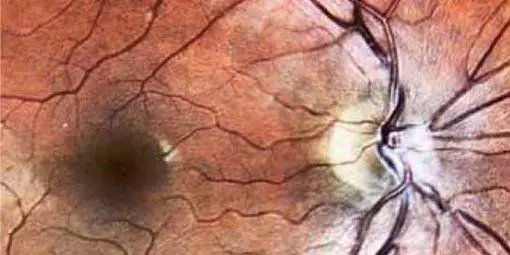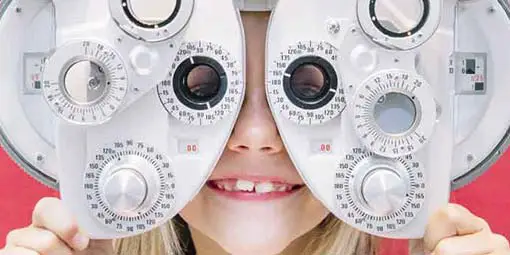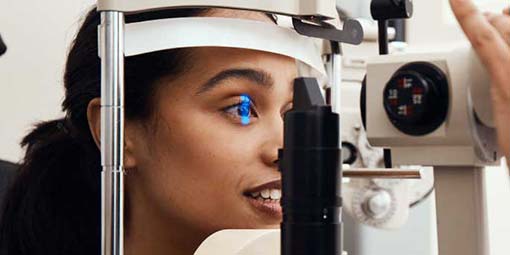Prevent Diabetes Damage To Your Eyes
25-03-2023
Diabetic Eye Disease
When you have diabetes, your body is unable to process sugar properly, which can lead to a range of health problems. One of the most significant risks associated with diabetes is eye disease, which can cause vision loss and even blindness if left untreated. That is why it is essential for people with type 1 and type 2 diabetes to have regular eye exams. Diabetic eye disease, also known as diabetic retinopathy, occurs when high levels of glucose in the blood damage the small blood vessels in the retina, the part of the eye responsible for transmitting visual information to the brain. Over time, this damage can cause the blood vessels to leak, swell, and even close off completely, leading to a range of vision problems.Early Detection Is Key
One of the challenges with diabetic retinopathy is that it often has no symptoms in its early stages. As the condition progresses, you may notice symptoms such as blurred or distorted vision, blind spots, or floaters. However, by the time these symptoms appear, the damage may already be irreversible.That is why regular eye exams are so crucial for people with diabetes. During an eye exam, your optometrist or ophthalmologist will use specialized equipment to examine the blood vessels in your retina and look for signs of damage. If they detect any problems, they can work with you to develop a treatment plan to prevent further damage and preserve your vision.
Regular Eye Exams & Self Care
Diabetes Canada recommends that people with diabetes have a comprehensive eye exam at least once a year. However, if you have any signs or symptoms of diabetic retinopathy, such as blurred vision, floaters, or difficulty seeing at night, you should see your eye doctor right away. In addition to regular eye exams, there are other steps you can take to protect your vision when you have diabetes. One of the most important things you can do is to keep your blood sugar levels under control. High levels of glucose in the blood can cause damage to the blood vessels in the retina, so it is essential to monitor your blood sugar levels closely and work with your physican to develop a treatment plan that keeps them within a healthy range.Another crucial step in protecting your vision is to maintain a healthy lifestyle. This includes eating a healthy diet that is rich in fruits, vegetables, whole grains, and lean protein, getting regular exercise, and not smoking. All of these habits can help to reduce your risk of developing diabetic retinopathy and other complications of diabetes. If you do develop diabetic retinopathy, there are several treatment options available to you. One of the most effective treatments is called laser photocoagulation, which uses a laser to seal off leaking blood vessels in the retina. Another option is called vitrectomy, which involves removing the gel-like substance in the center of the eye and replacing it with a saline solution.
An Ounce Of Prevention
While these treatments can be effective, the best way to protect your vision is to prevent diabetic retinopathy from developing in the first place. By having regular eye exams, keeping your blood sugar levels under control, and maintaining a healthy lifestyle, you can reduce your risk of developing this serious complication of diabetes and enjoy clear vision for years to come. In conclusion, regular diabetic eye exams are a vital part of managing diabetes and protecting your vision. If you have diabetes, it is important to schedule regular eye exams with our Edmonton eye doctors, even if you do not have any symptoms of diabetic retinopathy. By taking proactive steps to maintain your eye health, you can reduce your risk of developing vision problems and enjoy a full and active life. Schedule An AppointmentFYEyes Blog Posts

Are Diabetic Eye Exams Covered in Alberta?
Eye health exams are covered by AHCIP for diabetics in Alberta.

Diabetic Retinopathy - Symptoms, Causes and Treatment
Diabetic Retinopathy is a serious eye condition that can affect the retina of individuals with diabetes.

Importance of Advanced Eye Exam Technologies
Advanced eye exam technologies promote the early detection of eye diseases.

How much does an eye exam cost in Edmonton (2026)?
Eye exam coverage and costs varies among children, adults and seniors.

Adult Eye Exams
Our advanced eye exams consist of 25+ modern tests and digital scans to assess eye health, function, and visual acuity.

Child Eye Exams
Give your child a clear future with an annual eye exam from our experienced Edmonton optometrists.

Senior Eye Exams
Maintain your vision through your golden years with gold standard eye care from the optometrists at our Edmonton eye clinic.

Contact Lens Eye Exams
Our eye exams for contact lens wearers include test and digital scans to assess eye health, function, visual acuity, and lens fit.

Diabetic Eye Exams
Managing diabetes requires regular eye exams to ensure that diabetes is not causing irreversible vision loss.

Dilated Eye Exams
Dilating the eyes enables our Edmonton optometrists to see more of the eye so that you many never see less.
Our Edmonton Eye Exams Are Comprised Of 4 Phases Of Evaluation

1. Eye Exam Pre-Testing
Corneal Thickness | Intraocular Pressures | Visual Field
Pre-testing is a detailed process that gathers all necessary information for the optometrist in advance of the optometrist-administered eye examination. This process involves completing a detailed patient history, as well as a series of standard tests. Pre-testing is an essential part of the comprehensive eye exam process, providing valuable information and visuals for both the optometrist and the patient.
More About Pre-Testing »
2. Advanced Diagnostic Testing
Retinal Photography, OCT, Topography
eye-deology Vision Care differentiates itself from other clinics by having the most advanced modern diagnostic specialty testing equipment. Specialty equipment, such as a wide-angle high-resolution retinal imager, Optical Coherence Tomography (OCT), Humphrey Visual Field Analyzer and corneal topographer, ensures that patients receive the best comprehensive eye care.
More About Advanced Testing »
3. Optometrist Examination
Health Assessment & Disease Diagnosis
eye-deology Vision Care Edmonton optometrists perform a multitude of tests and assessments to evaluate ocular health, eye coordination, and visual acuity. In addition, they also evaluate the results of the tests and scans performed during pre-testing. As part of patient education, our optometrists also take the time to show and explain results to patients.
More About Doctor Exam »
4. Eye Glass Consult
Prescription | Lens Selection | Digital Fitting
If you require corrective lenses to improve your vision, our licensed opticians will customize their fit to your unique attributes, needs, lifestyle, and budget. Our opticians are happy to provide you with information about the latest eyeglass frame and lens technologies available so you can make informed decisions and begin seeing and looking your best.
More About Eyewear Consult »